 This album is definitely one of the more unlikely underground hits to cross my path in recent memory, as this strikingly unique bagpipe performance first quietly surfaced as an extremely limited CDr back in 2017 on Strasbourg's Soleils Bleus label. Last year, however, it got a well-deserved vinyl resurrection on Belgium's forward-thinking Morc Records and it sold out almost immediately (as did last month's repress, unsurprisingly). Notably, the bagpipe has historically not been my favorite instrument, but I've said the same thing in the past about harps and harpsichords only to have my mind blown by Joanna Newsom, Mary Lattimore, and Catherine Christer Hennix, so this is merely the latest revelation that any instrument can sound amazing in the right hands. I also never expected the French traditional music scene to be the source of so many stellar contemporary albums, yet Lise and Lisa have just joined my personal pantheon of Gallic folkies (France, Tanz Mein Herz, etc.) who have dropped killer left-field psych gems in recent years. That is an especially impressive feat for Kaüffert, given that she is a German bagpiper.
This album is definitely one of the more unlikely underground hits to cross my path in recent memory, as this strikingly unique bagpipe performance first quietly surfaced as an extremely limited CDr back in 2017 on Strasbourg's Soleils Bleus label. Last year, however, it got a well-deserved vinyl resurrection on Belgium's forward-thinking Morc Records and it sold out almost immediately (as did last month's repress, unsurprisingly). Notably, the bagpipe has historically not been my favorite instrument, but I've said the same thing in the past about harps and harpsichords only to have my mind blown by Joanna Newsom, Mary Lattimore, and Catherine Christer Hennix, so this is merely the latest revelation that any instrument can sound amazing in the right hands. I also never expected the French traditional music scene to be the source of so many stellar contemporary albums, yet Lise and Lisa have just joined my personal pantheon of Gallic folkies (France, Tanz Mein Herz, etc.) who have dropped killer left-field psych gems in recent years. That is an especially impressive feat for Kaüffert, given that she is a German bagpiper.
As far as I can tell, Lo Becat was originally recorded back in 2016 for a radio broadcast, but Lise and Lisa have been playing together as a duo since 2014. While Kaüffert's own origin story remains a mystery to me, Barkas' journey to traditional music amusingly began via Coil, as she was entranced by Cliff Stapleton's hurdy-gurdy playing. That eventually led her to the music of France's Yann Gourdon and her involvement in more traditional fare, but that was mostly because there is a lot more demand for bagpipe and hurdy-gurdy players in the traditional/folk music scenes than in the experimental one (Coil is no longer hiring, I'm afraid). In the years since, however, Barkas and her like-minded friends have carved out a unique niche through the band L'Écluse (Kaüffert is also a member) and collectives like Kreis. Unsurprisingly, Lo Becat is the appropriately unusual fruit of a union between two avant-garde-minded bagpipers with one foot in traditional music circles, as it is essentially a loose fantasia upon an old ballad entitled "la belle va au jardin des amours" (Beauty Goes To The Garden of Love) that segues into a folk dance. Neither of the two pieces incorporated into Lo Becat are familiar to me as an American, of course, but I doubt a dueling bagpipe version of either would be recognizable to many French people either. That said, a timeless and beloved melody is always a solid foundation for adventurous experimentation or improv.


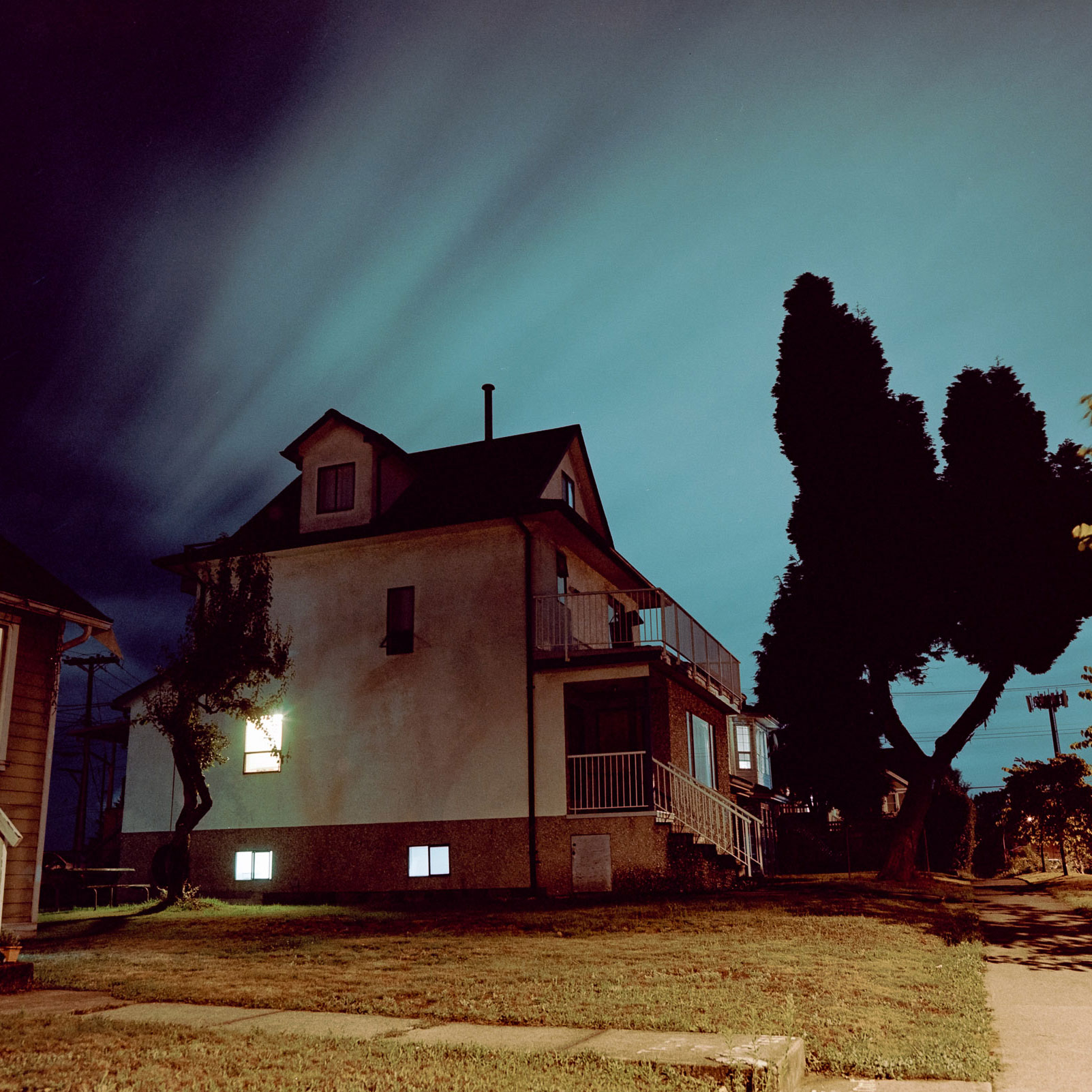
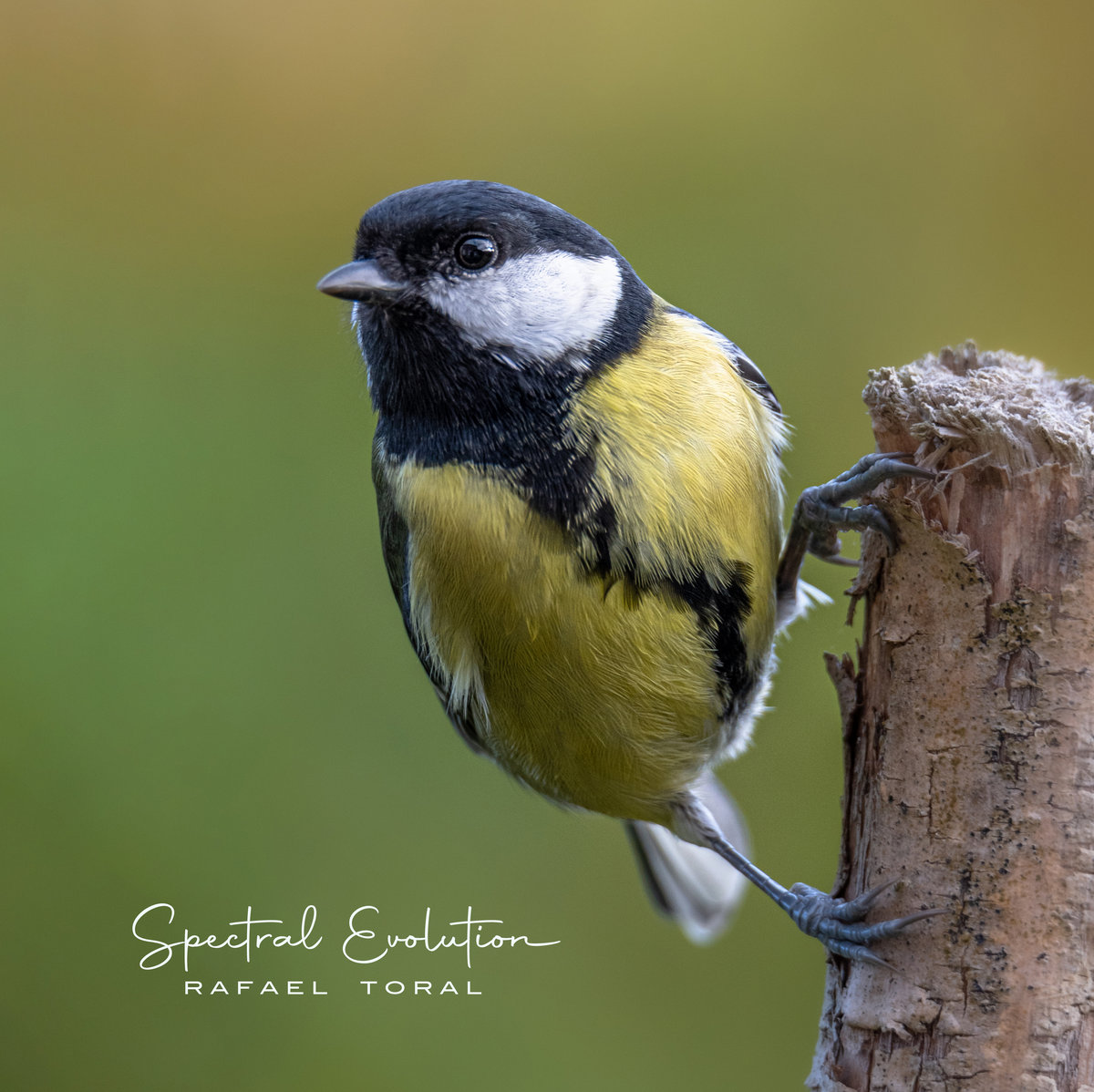 Before I heard this album, I mistakenly believed that I had a reasonable familiarity with Rafael Toral's oeuvre, as I had heard and enjoyed a handful of his classic guitar-era albums such as 2001's Violence of Discovery and Calm of Acceptance. That said, it had been a while since I had kept tabs on his work, so I was quite curious to hear what made this "quintessential album of guitar music" exciting enough to reawaken Jim O'Rourke's decades-dormant Moikai label. As it turns out, absolutely everything about Spectral Evolution feels like a goddamn revelation to me and I am now kicking myself for sleeping on Toral's post-guitar Space Program-era of experimentation with self-built instruments. The psychotropic omnipresence of those self-built instruments makes it amusingly misleading to call Spectral Evolution Toral's return to guitar music, but if the presence of some recognizable guitar sounds lures more listeners towards this one-of-a-kind work of genius, I believe that claim has served a worthy purpose. Listening to this album was like hearing classic Merzbow or My Cat Is An Alien for the first time, as Toral plays entirely by his own set of rules and succeeds spectacularly.
Before I heard this album, I mistakenly believed that I had a reasonable familiarity with Rafael Toral's oeuvre, as I had heard and enjoyed a handful of his classic guitar-era albums such as 2001's Violence of Discovery and Calm of Acceptance. That said, it had been a while since I had kept tabs on his work, so I was quite curious to hear what made this "quintessential album of guitar music" exciting enough to reawaken Jim O'Rourke's decades-dormant Moikai label. As it turns out, absolutely everything about Spectral Evolution feels like a goddamn revelation to me and I am now kicking myself for sleeping on Toral's post-guitar Space Program-era of experimentation with self-built instruments. The psychotropic omnipresence of those self-built instruments makes it amusingly misleading to call Spectral Evolution Toral's return to guitar music, but if the presence of some recognizable guitar sounds lures more listeners towards this one-of-a-kind work of genius, I believe that claim has served a worthy purpose. Listening to this album was like hearing classic Merzbow or My Cat Is An Alien for the first time, as Toral plays entirely by his own set of rules and succeeds spectacularly. I tend to enjoy damn near everything that Sweden's XKatedral label releases, but this half-disturbing/half-transcendent tour de force by co-founder Maria W. Horn still managed to completely blindside me. Panoptikon's four-part suite was originally composed for a macabre installation at the "disbanded Vita Duvan (White Dove) panopticon prison in Luleå, Sweden." Being a panopticon, Vita Duvan had an unusual circular design "to create a sense of omniscient surveillance," but that is just the tip of a very grim iceberg, as it was also known for its brutal isolation tactics as well as rampant torture and execution. While the prison mercifully ceased operations in 1979, I suspect I would've needed months of therapy to recover from Horn's installation alone, as it pulsed in synchronization with the prison's lights and the cells contained speakers broadcasting the imagined voices of the doomed prisoners. Thankfully, the decontextualized album is considerably less harrowing than its origin suggests, as its dark choral opening quickly expands into an immersive swirl of heady drones, spacy synths, and timelessly beautiful vocal motifs.
I tend to enjoy damn near everything that Sweden's XKatedral label releases, but this half-disturbing/half-transcendent tour de force by co-founder Maria W. Horn still managed to completely blindside me. Panoptikon's four-part suite was originally composed for a macabre installation at the "disbanded Vita Duvan (White Dove) panopticon prison in Luleå, Sweden." Being a panopticon, Vita Duvan had an unusual circular design "to create a sense of omniscient surveillance," but that is just the tip of a very grim iceberg, as it was also known for its brutal isolation tactics as well as rampant torture and execution. While the prison mercifully ceased operations in 1979, I suspect I would've needed months of therapy to recover from Horn's installation alone, as it pulsed in synchronization with the prison's lights and the cells contained speakers broadcasting the imagined voices of the doomed prisoners. Thankfully, the decontextualized album is considerably less harrowing than its origin suggests, as its dark choral opening quickly expands into an immersive swirl of heady drones, spacy synths, and timelessly beautiful vocal motifs.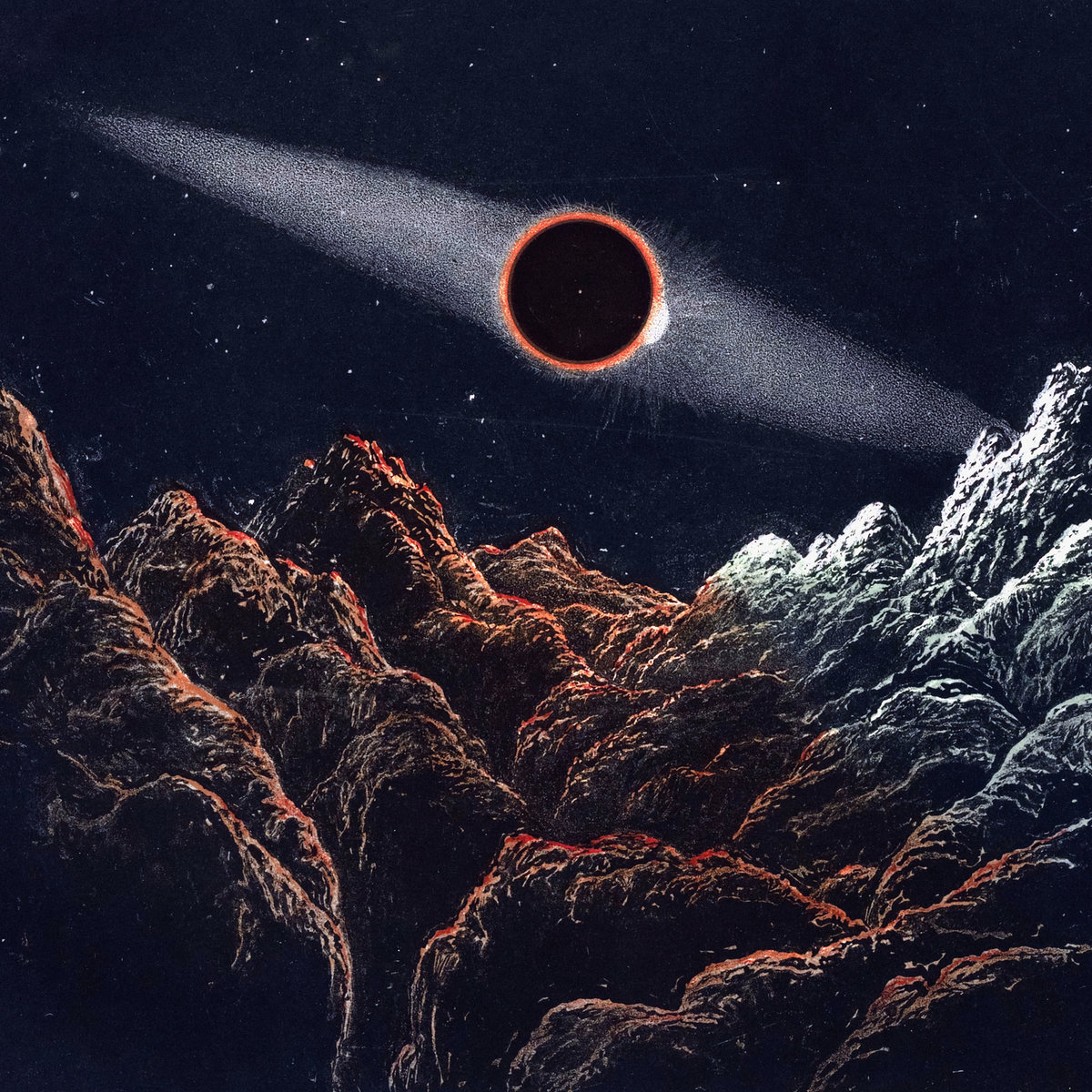 This fifth full-length from Yorkshire-based guitar visionary Dean McPhee is actually a compilation of sorts, bringing together the pieces from his out-of-print Cosmos / Ether lathe cut 7" (2022) with a couple of gems from Folklore Tapes compilation appearances. Happily, however, Astral Gold is also rounded out with a pair of new pieces and one of them ("The Sediment of Creation") easily ranks among McPhee's finest work. Given that I was already a huge fan of one of the Folklore Tapes pieces included here, that is more than enough to make this a solid release, but it is also an unexpectedly focused and thematically compelling one given the varied origins and inspirations of these songs. It is quite an aptly named release as well, as the languorously meditative and cosmic mood of these pieces seem like they would be an ideal soundtrack for any astral traveling that one might have on the horizon.
This fifth full-length from Yorkshire-based guitar visionary Dean McPhee is actually a compilation of sorts, bringing together the pieces from his out-of-print Cosmos / Ether lathe cut 7" (2022) with a couple of gems from Folklore Tapes compilation appearances. Happily, however, Astral Gold is also rounded out with a pair of new pieces and one of them ("The Sediment of Creation") easily ranks among McPhee's finest work. Given that I was already a huge fan of one of the Folklore Tapes pieces included here, that is more than enough to make this a solid release, but it is also an unexpectedly focused and thematically compelling one given the varied origins and inspirations of these songs. It is quite an aptly named release as well, as the languorously meditative and cosmic mood of these pieces seem like they would be an ideal soundtrack for any astral traveling that one might have on the horizon.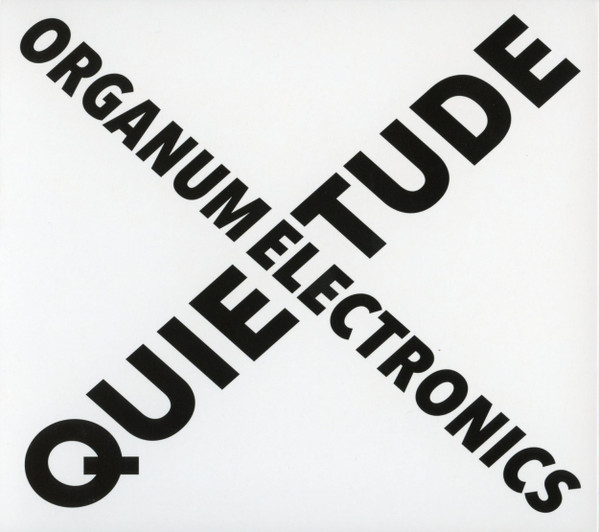 As the first two installments of a seven-part subscription series on Die Stadt, David Jackman (as Organum Electronics) has fashioned two new long-form pieces that are seemingly sparse in their formation, but like the entirety of his lengthy discography, result in something with so much more depth. Material utilized in other recent works from him are building blocks in these two discs, but compared to the quiet and understated recent material, these align much more closely with his earlier, noisier material, and continues to demonstrate his compositions are as fascinating as ever.
As the first two installments of a seven-part subscription series on Die Stadt, David Jackman (as Organum Electronics) has fashioned two new long-form pieces that are seemingly sparse in their formation, but like the entirety of his lengthy discography, result in something with so much more depth. Material utilized in other recent works from him are building blocks in these two discs, but compared to the quiet and understated recent material, these align much more closely with his earlier, noisier material, and continues to demonstrate his compositions are as fascinating as ever.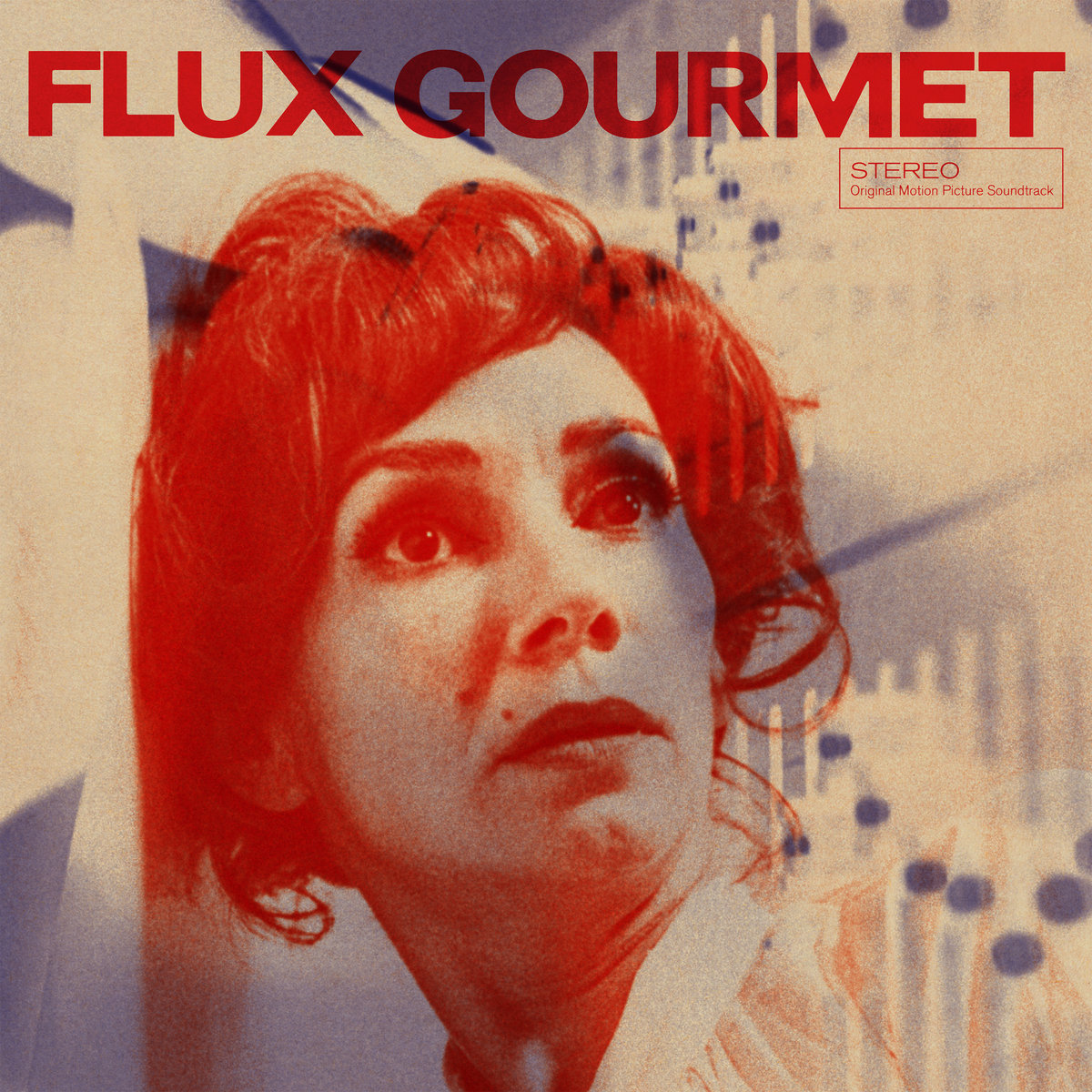 I acknowledge it is only February right now, but I believe I can confidently state that this soundtrack will be the weirdest and most mystifying new album that I will encounter this year. The film itself was released back in 2022 and follows the trials and tribulations of an imaginary performance art group during a surreal and contentious month-long artist residency. It is an absolutely brilliant and wickedly funny film (possibly director Peter Strickland's finest work) and joins similarly deranged fare like Holy Mountain in the pantheon of cinema so audaciously batshit crazy that it is hard to fathom how it was ever financed, cast, or released. As befits such a bananas endeavor, the soundtrack features a murderers' row of compelling artists from the experimental/psych fringes, drawing participants from Broadcast, Nurse With Wound, Stereolab, Neutral Milk Hotel, Swans, and elsewhere. Obviously, that seems like a solid recipe for a unique album, but it is a unique album with a twist, as the heart of it all is Strickland's own Sonic Catering Band, a shifting collective devoted to transforming the preparation of vegetarian meals into ritualistic noise performances.
I acknowledge it is only February right now, but I believe I can confidently state that this soundtrack will be the weirdest and most mystifying new album that I will encounter this year. The film itself was released back in 2022 and follows the trials and tribulations of an imaginary performance art group during a surreal and contentious month-long artist residency. It is an absolutely brilliant and wickedly funny film (possibly director Peter Strickland's finest work) and joins similarly deranged fare like Holy Mountain in the pantheon of cinema so audaciously batshit crazy that it is hard to fathom how it was ever financed, cast, or released. As befits such a bananas endeavor, the soundtrack features a murderers' row of compelling artists from the experimental/psych fringes, drawing participants from Broadcast, Nurse With Wound, Stereolab, Neutral Milk Hotel, Swans, and elsewhere. Obviously, that seems like a solid recipe for a unique album, but it is a unique album with a twist, as the heart of it all is Strickland's own Sonic Catering Band, a shifting collective devoted to transforming the preparation of vegetarian meals into ritualistic noise performances. This is the second album from the instrumental duo of Ellis Swan and James Schimpl and the first Dead Bandit album to follow Swan's killer 2022 solo album 3am. Happily, Memory Thirteen returns to the hypnagogic "witching hour" vibes of 3am, but it also marks a very compelling creative leap forward into fresh stylistic terrain. To my ears, that blearily dreamlike terrain is best described as "what if Boduf Songs scored a gig as the house band at a strip club in the Donnie Darko universe?" Needless to say, that is a very tricky and hyper-specific niche to fill, yet Dead Bandit consistently find new ways to combine hushed and haunted late-night melancholy with neon-soaked sensuousness, deadpan cool, and dreampop shimmer.
This is the second album from the instrumental duo of Ellis Swan and James Schimpl and the first Dead Bandit album to follow Swan's killer 2022 solo album 3am. Happily, Memory Thirteen returns to the hypnagogic "witching hour" vibes of 3am, but it also marks a very compelling creative leap forward into fresh stylistic terrain. To my ears, that blearily dreamlike terrain is best described as "what if Boduf Songs scored a gig as the house band at a strip club in the Donnie Darko universe?" Needless to say, that is a very tricky and hyper-specific niche to fill, yet Dead Bandit consistently find new ways to combine hushed and haunted late-night melancholy with neon-soaked sensuousness, deadpan cool, and dreampop shimmer.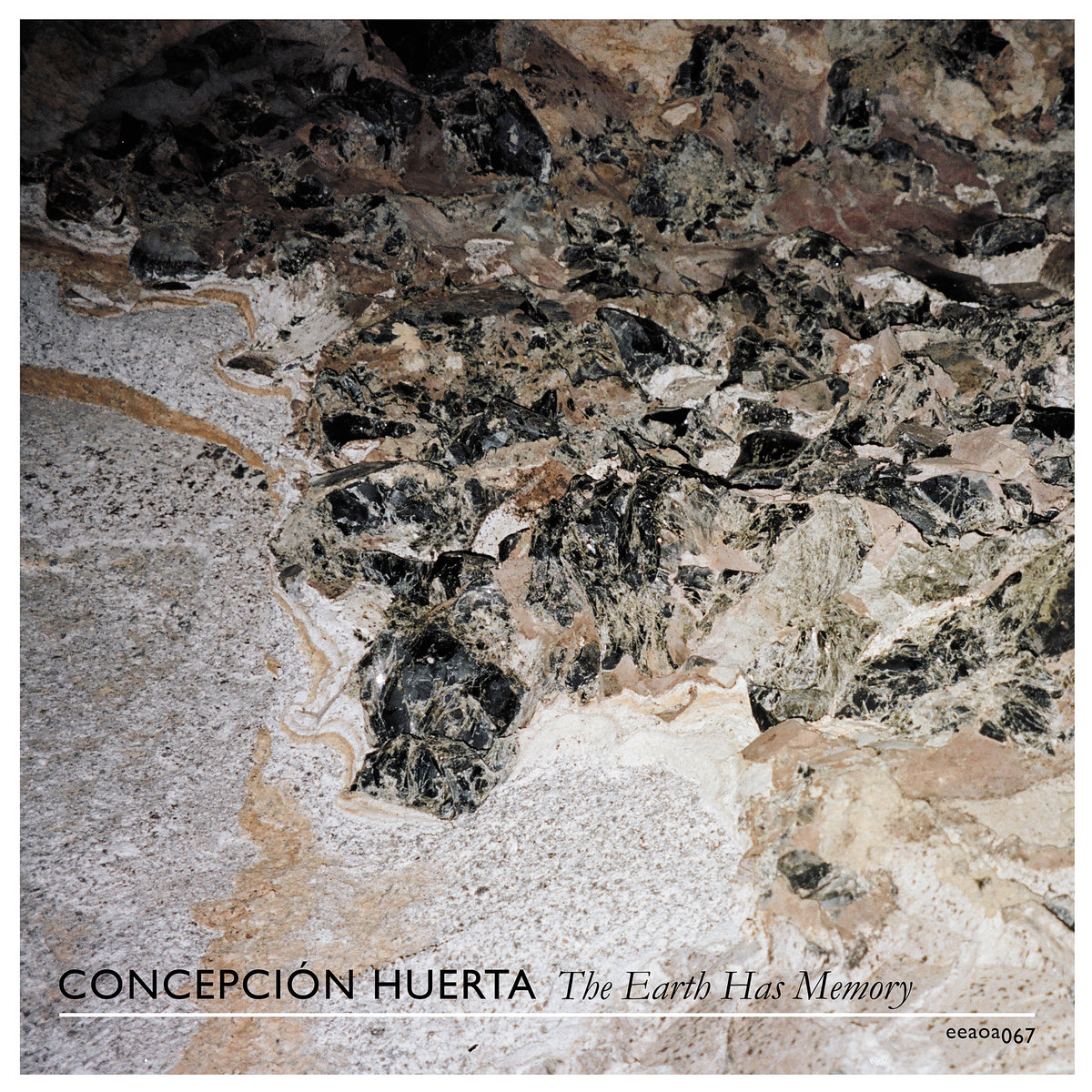 On her first solo vinyl release, Mexico's Concepción Huerta largely employs the use of Buchla and Nord synths, recorded in residence at EMS Stockholm. Further tape manipulation is then used to create a record that sits somewhere between atmospheric space and intense noise. Textures and distortion sprawl outward, but occasionally relent to allow some gentle elements to slip in, resulting in a record that sounds rooted not just in the Earth, but also expands far into outer space.
On her first solo vinyl release, Mexico's Concepción Huerta largely employs the use of Buchla and Nord synths, recorded in residence at EMS Stockholm. Further tape manipulation is then used to create a record that sits somewhere between atmospheric space and intense noise. Textures and distortion sprawl outward, but occasionally relent to allow some gentle elements to slip in, resulting in a record that sounds rooted not just in the Earth, but also expands far into outer space. Barely six months after his last double album Embrace This Twilight, Matt Weston has just released another record of idiosyncratic compositions. Consisting of two side-long pieces, Weston balances two notable different approaches to composition, with the first side being the more spacious and sustained, and the other dense and sprawling in approach, linking disparate sounds in an incredible manner.
Barely six months after his last double album Embrace This Twilight, Matt Weston has just released another record of idiosyncratic compositions. Consisting of two side-long pieces, Weston balances two notable different approaches to composition, with the first side being the more spacious and sustained, and the other dense and sprawling in approach, linking disparate sounds in an incredible manner.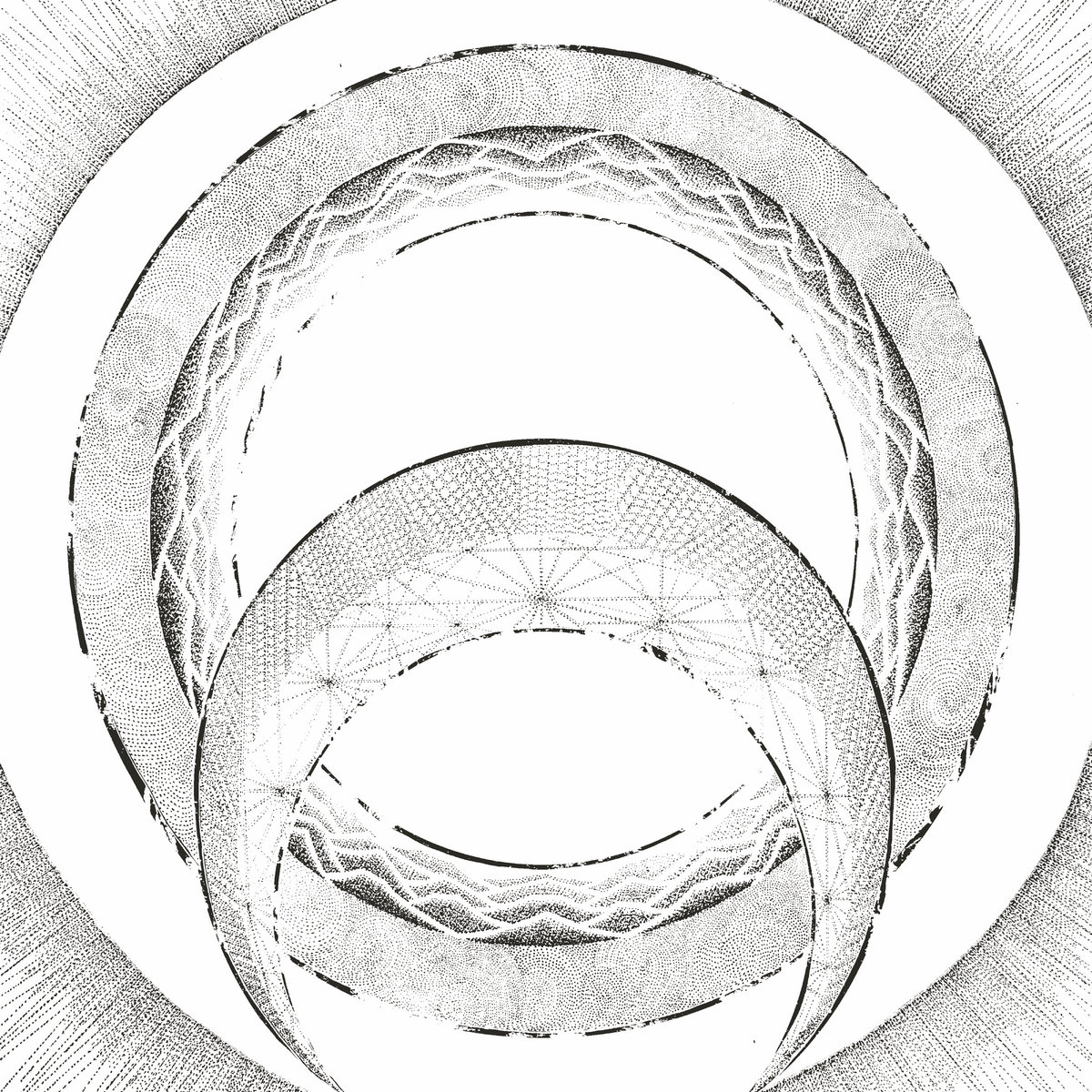 This is New York-based composer/puppeteer Tristan Allen's full-length debut and it is quite an ambitious one, as Tin Iso and the Dawn is the first chapter of a planned "shadow puppet symphony" trilogy loosely based on Wagner's "Tristan and Isolde" that has been in the works since 2015. From where I am standing, there are innumerable ways in which such an album could go wrong and they range from "forgettable score to cool puppet show" to "cloyingly precious" to "outright bombastic." Instead, however, Tin Iso and the Dawn sounds like a stone-cold masterpiece dropped by a creative supernova. Listening back to Allen's previous discography (a pair of classical piano EPs), it almost feels like this vision materialized out of nowhere, but the seeds of this puppet-centric magnum opus may have been planted more than a decade ago when Allen co-wrote a piece with Amanda Palmer in the early days of her "Dresden Dolls hiatus" solo career.
This is New York-based composer/puppeteer Tristan Allen's full-length debut and it is quite an ambitious one, as Tin Iso and the Dawn is the first chapter of a planned "shadow puppet symphony" trilogy loosely based on Wagner's "Tristan and Isolde" that has been in the works since 2015. From where I am standing, there are innumerable ways in which such an album could go wrong and they range from "forgettable score to cool puppet show" to "cloyingly precious" to "outright bombastic." Instead, however, Tin Iso and the Dawn sounds like a stone-cold masterpiece dropped by a creative supernova. Listening back to Allen's previous discography (a pair of classical piano EPs), it almost feels like this vision materialized out of nowhere, but the seeds of this puppet-centric magnum opus may have been planted more than a decade ago when Allen co-wrote a piece with Amanda Palmer in the early days of her "Dresden Dolls hiatus" solo career.
